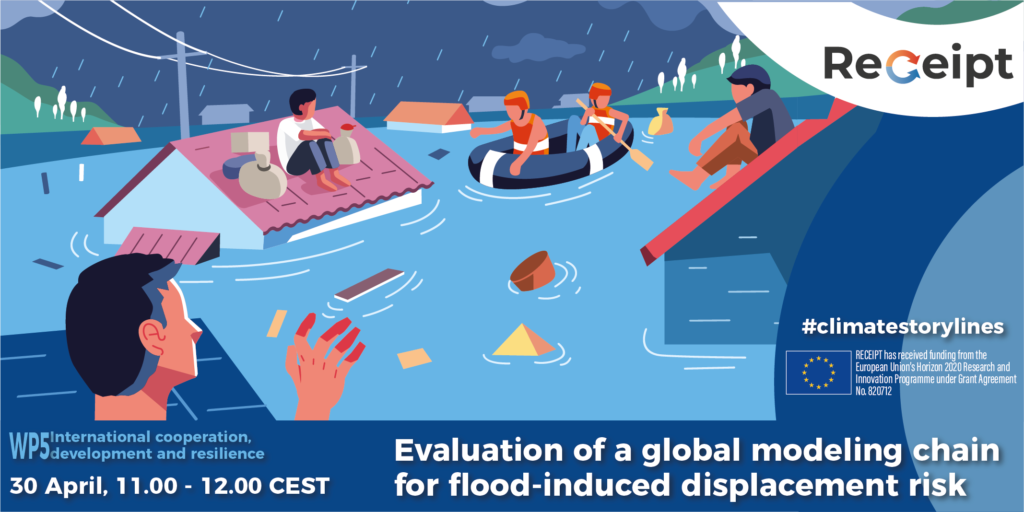Did you know that over the last 10 years, river floods have displaced over 100 million people worldwide? Natural hazards have huge consequences not just on the environment, but also cause financial losses, fatalities and force people to leave their homes. Displacement due to disasters leads to migration and has geopolitical consequences. In our new bimonthly webinar series, we are looking at how the climate crisis can affect international cooperation, development and resilience.
Floods are set to increase both in frequency and intensity in our changing climate. That’s why it is important to understand the spatial and temporal patterns of displacement risk, as well as the factors of vulnerability to flood displacement to anticipate and prepare for future changes in risk.
In this first webinar ‘Evaluation of a global modeling chain for flood-induced displacement risk’, we have looked at RECEIPT’s work on flood modeling and displacement. The webinar was recorded and can be viewed below:
The speakers were Benedikt Mester from the Potsdam Institute for Climate Impact Research (PIK) and Arthur Essenfelder from the Euro-Mediterranean Centre on Climate Change. The webinar was moderated by RECEIPT’s lead Bart van den Hurk.
Benedikt’s presentation starts at 04:46 and his slides are available here.
Arthur’s intervention begins at 43:06 and his slides are available here.

Published on : 04 May 2021
